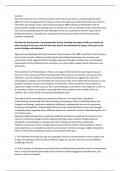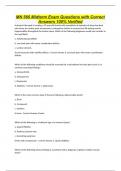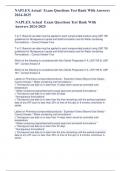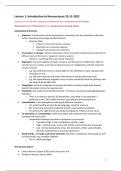Exam (elaborations)
Exam Answer on Psychodynamic Theory and use within a Scenario
- Module
- Level 2 Counselling Skills
- Institution
- Level 2 Counselling Skills
Psychodynamic Theory exam answer with a scenario to apply the theory to. Includes all Freud's stage (tripartite personality, psychosexual stage, oedipus/electra complex, etc.). Includes an explanation and background of the Psychodynamic theory and application against the scenario. This answer...
[Show more]






